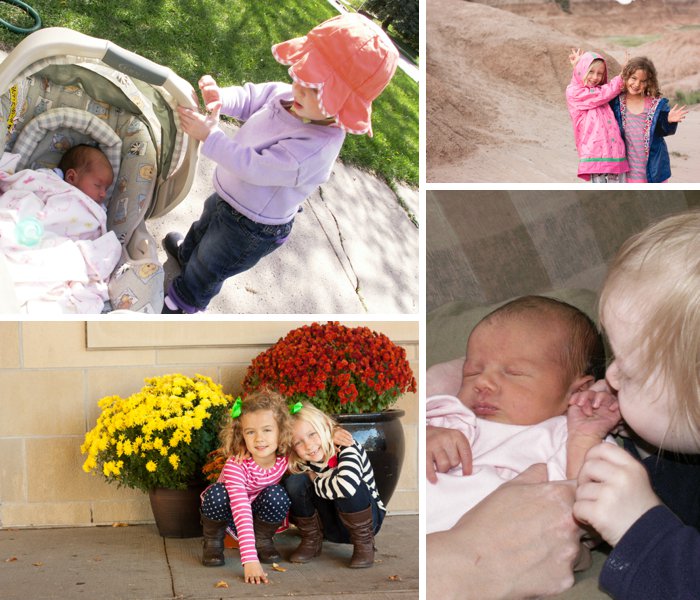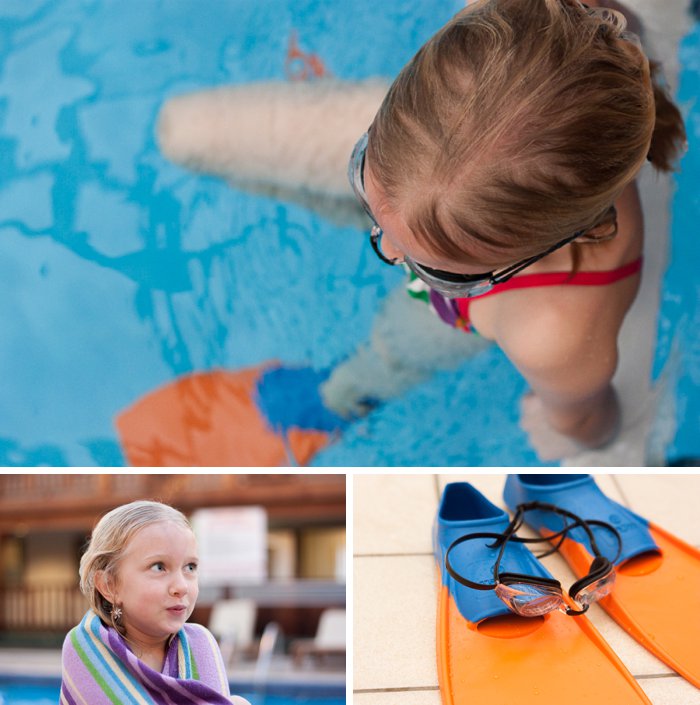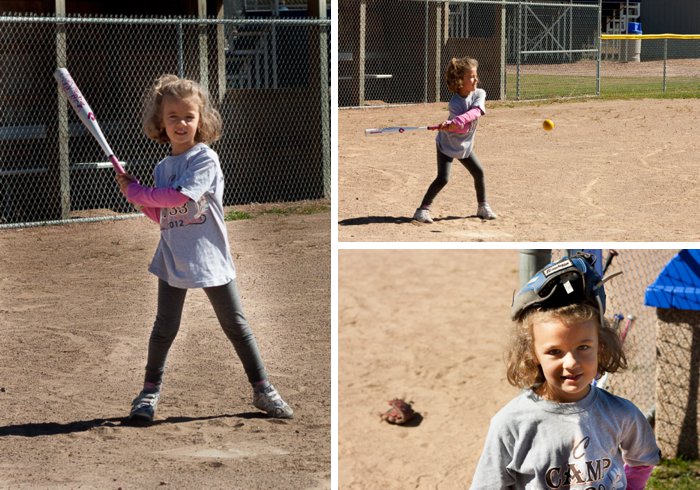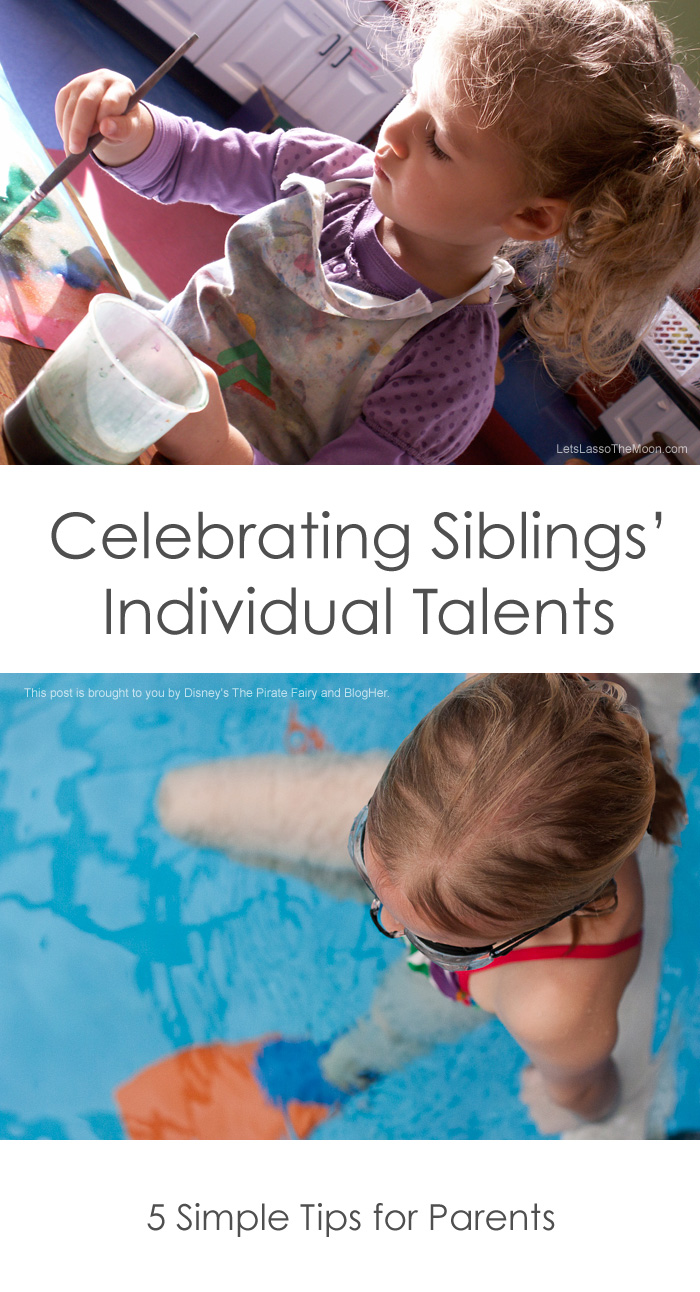Striking the right balance when encouraging talents and recognizing accomplishments among siblings can be challenging. As parents, we certainly want to foster and celebrate our children's individual gifts. And we want to do it in a way that each child feels bolstered — and no one feels slighted.
Below are 5 tips for fostering INDIVIDUAL talents among siblings.
But first, allow me to "set the stage..."
My two girls are a mere 15 months apart. When I was pregnant with my second daughter, I naively thought, "I've got this baby stuff down." I mean I had literally just been through the challenges of infancy with my daughter Quinn. It was all fresh in my memory, ready to be put to good use. Then came Rose — my gentle and beautiful reminder that all children are unique. (Yes, that's my carefully worded way of revealing that my parenting tricks that had worked so smashingly with Quinn somehow failed miserably with Rose.)

Despite their closeness in age, their differences are vast... My oldest daughter has light blond hair and pale skin; my youngest daughter has dark curly hair and the complexion of a Coppertone Kid. Quinn is an Early Bird, waking every day at 5:55 a.m.; Rose is a Night Owl, reading herself to sleep each evening. One is an extrovert who gets excited about company and plans; the other is a strong introvert who finds joy in stretches of solitude.
My daughters' closeness in age often amplifies their normal sibling tendency to compare themselves to one another. Thus, over the years, my husband and I have worked hard to help foster their individual passions and interests. Below are 5 simple tips for fostering your children's INDIVIDUAL talents:
1. Give them time apart. Your kids spend a great deal of time TOGETHER. Don't underestimate the power of one-on-one time with your children. A short "Coffee & Hot-Cocoa Date" with Mom or Dad can lead to interesting conversations about your child's current (and ever-changing) life interests. Spending a special "Sans-Siblings Grandparents Weekend" can also help other family members make interesting discoveries about your child's true personality. Open the door for your whole family to get to know your children as individuals by taking time for these types of solo adventures.
2. Honor their personality and preferences. These days, engaging activities for kids are aplenty. If your child loves being around other people, participate in a club or play a team sport. If the pressure of a team sport is too much, a trip to the library, museum, or make-your-own pottery shop might be a good fit. There are tons of unique activities out there waiting for you and your child.
You can also opt for some "middle ground" hobbies. For example, when our girls were little, they took ballet as individuals, yet they had the opportunity to perform in the local production of The Nutcracker as a group. If your child loves baseball, but isn't quite ready for a team setting, try looking for a class that focuses on the individual skills of the game. Taking an individual class on hitting might improve their team confidence. Swim Clubs also offer a unique team opportunity. Children compete as individuals, but their collective scores lead to a team win. You know your child's personality best. Search for a good fit!

3. Tell them stories. Foster your child's talents by telling them about REAL people who also share their passion. Our daughters both love to draw, paint, and create art. We've chatted about another friend, Debbie Clement, who has used her talents as a musician and artist to help teach children. We've also talked about my friend Kerry Rose Ramsden, who left her "day job" to be a painter. My girls were amazed when they found out that Walt Disney was a real man who had followed his dreams. Make a habit of sharing tales of everyday people who have overcome struggles by honoring their natural talents.
4. Avoid the Mini-Me Syndrome. As parents, we often look back to our own childhoods with a sense of nostalgia. Be cautious about getting caught up in "When I was young..." thinking. Share your experiences, but be aware of pushing them into something just because it's what you liked or excelled in as a child. The underlying pressure this can put on a child can be intense. When introducing a fond activity you did as a kid — like baseball, for example — watch for non-verbal cues that your child truly enjoys the activity. Try not to put your child in a position of disliking something, but being scared of hurting your feelings by telling you the truth.

5. Celebrate differences. Our family tries to continually celebrate the fact that everybody's different. We reiterate this point in a variety of settings. During dinner, we talk about how different people like different foods. On Family Movie Night, we discuss how different people like different types of films. When we talk about our family's special talents, we celebrate our differences.
Bonus Tip: A good friend of mine was recently told that her six-year-old daughter was too old to start learning gymnastics. She was informed that other children had been training since they were toddlers, so her daughter would be too far behind. A child is never too old to learn the joy of cartwheels!
As modern parents, instead of focusing solely on one talent or activity, be sure to keep the opportunities for exploration open. Early childhood is a time to dabble and explore!
"I think, at a child's birth, if a mother could ask a fairy godmother to endow it with the most useful gift, that gift should be curiosity." — Eleanor Roosevelt
My daughter wanted to try fast-pitch softball this spring. She is nine years old and we were concerned that, as one of the youngest children in her group, she'd be apprehensive at the first practice. Instead, she blew my husband away by enthusiastically volunteering to practice pitching. She saw the older girls whipping their arms around and honing their aim, and instead of being intimidated, she wanted to learn how to do it herself. Give your child the opportunity to be curious, to surprise you, to find their talents just waiting to burst through.
How do you help foster your child's individual talents? In what ways to you foster a sense of curiosity in your children? Let's chat in the comments.

 |
 |
 |
 |
 |
|
 |
|||||
Pin it:





